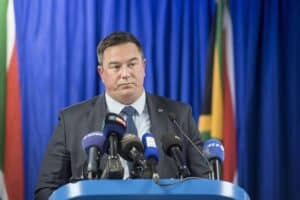Pupils would engage in group discussions to identify their (and others') 'private parts', discuss 'lesbian relationships', same-sex molestation and sexual assault, among others.

After being asked to revise its controversial proposed policy on sex education at schools, the department of basic education has apparently delivered a programme that some stakeholders have rejected as being “too graphic”.
The Freedom Front Plus (FF Plus) has joined the National Professional Teachers Organisation of South Africa (Naptosa) in expressing disapproval of the department’s revised comprehensive sexuality education programme.
The programme is set to be introduced as part of the life orientation curriculum.
There were objections regarding how the revised curriculum, meant for children from Grade 4 onwards, would be taught as some said it was “too graphic” about sex.
Some unions, including the Suid-Afrikaanse Onderwysers Unie (SAOU), expressed outrage over the proposed changes.
SAOU chief executive officer Chris Klopper criticised the lesson plans that promoted “particular sexual lifestyles”. He said the material was aimed at children who were “too young” to learn about these matters.
In the new curriculum, pupils would be asked to engage in group discussions to identify their (and others) “private parts”, discuss “lesbian relationships”, same-sex molestation and sexual assault.
Other parts of it included children being asked their views on “sexting topless photos”, discussing masturbation and various forms of sexual intercourse, including anal sex.
In a statement reacting to concerns about the curriculum, the department said the core aim of sexual education was to help pupils understand concepts, content, values and attitudes related to sexuality and sexual behaviour change, as well as how to lead safe and healthy lives.
It had sought to produce a comprehensive curriculum “to address real-world challenges and issues faced by pupils in their day-to-day lives” and in the process, it had gone through consultation platforms on the matter.
Yesterday, FF Plus MP Dr Wynand Boshoff said the department’s latest plan was an incoherent document that left more questions than answers on issues the public were concerned about.
“It endeavours to discredit opposition to the programme as malicious and unsubstantiated, but it provides no clarity. The statement actually warrants a paragraph-by-paragraph analysis to show how misleading it is,” Boshoff said.
Naptosa recently said it was not consulted on the matter, despite the department claiming it had been “through various consultation platforms” allowing for the evolution of the content and, in fact, adapted the lesson plans as a result.
The union described the department’s claims as an “attempt to take the sting out of the debate and to pacify the public”.
Naptosa executive director Basil Manuel said although the union was one of the important stakeholders and its members were expected to teach the content of the new programme, it was not consulted, nor had it seen the lesson plans, textbooks or the online teacher training course.
“The whole project has been veiled in secrecy, with the department responding and correcting what they call misleading information but, at the same time, failing to share complete information with stakeholders.
“It is unfathomable that with this approach, the department can be surprised that there is confusion and panic,” he said.
Boshoff said although the department undertook to consult, the learning materials were only made available to the portfolio committee on basic education after a parliamentary question was asked about them.
He also criticised the “secretive” way in which the department was attempting to implement sex education in schools, saying the situation was a self-inflicted crisis.
For more news your way, download The Citizen’s app for iOS and Android.
Support Local Journalism
Add The Citizen as a Preferred Source on Google and follow us on Google News to see more of our trusted reporting in Google News and Top Stories.








